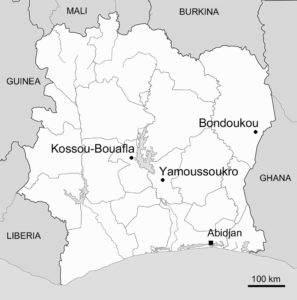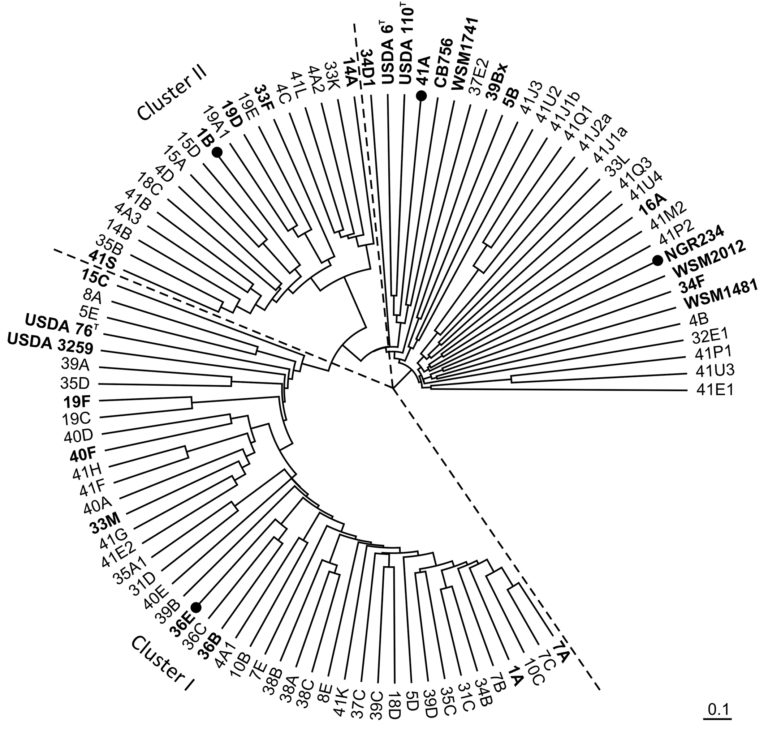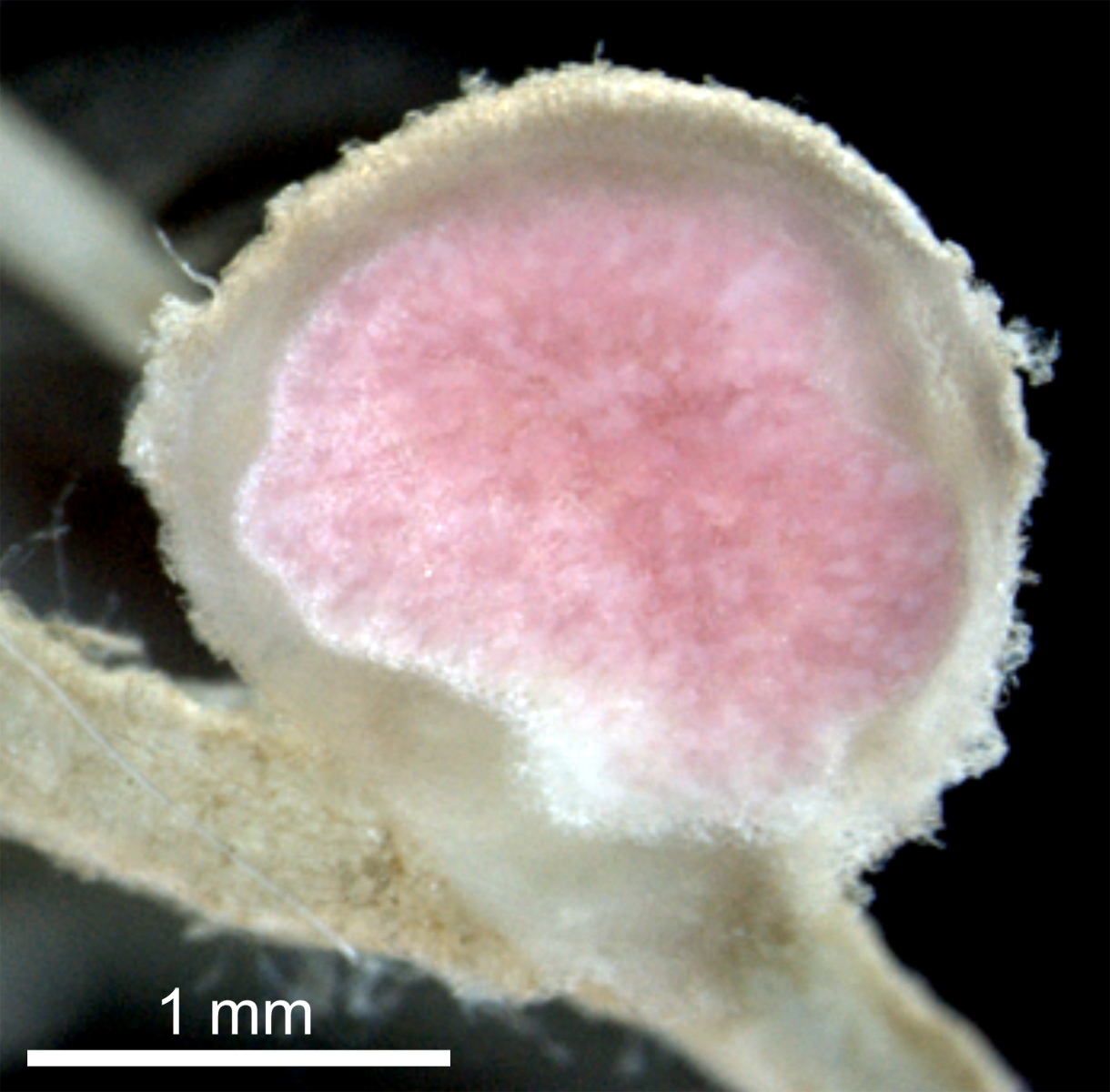Fossou et al. (Front. Microbiol. 2016. 7:1793), describes our probing of 6 fields in three distant regions of Côte d’Ivoire for rhizobia that associate with Cajanus cajan, and the subsequent detailed analysis of the isolated strains.
In Côte d’Ivoire, Cajanus cajan (pigeonpea) plays an important role in rural communities where it secures food to make ends meet. Pigeonpea seeds are sold on local markets mostly by women, and its aerial parts serve as forage for animals.
To identify rhizobia strains adapted to local soil and climate conditions, we sampled 6 fields in which C. cajan was grown for several years. Of the 85 strains isolated from root nodules, most clustered in two major clades based upon analysis of their spectra acquired using MALDI-TOF mass spectrometry.
Most proficient isolates belonged to Bradyrhizobium elkanii and another species characterised later as Bradyrhizobium ivorense (Fossou et al. 2020 Int. J. Syst. Evol. Microbiol. 70: 1421-1430).




